The New Mitsubishi Triton Against Its Rivals
Buying GuidesThe Triton is the latest model to join the crowded and competitive field of talented modern pick-up trucks. Four other major players include the Ford Ranger, Toyota Hilux, Nissan Navara, and Isuzu D-Max - all boasting lifestyle-centric aspirations, macho styling, and crucially impressive levels of comfort and day-to-day usability.
For this discussion, we will be comparing the range-topping models from each brand. The Triton and Ranger are the newest from the current crop, but the Hilux, Navara, and D-Max have all received some updates throughout their production lifespan, some more substantial than others. We discount the Ranger Raptor, which is a super-truck of sorts that is priced way above trucks in this class.
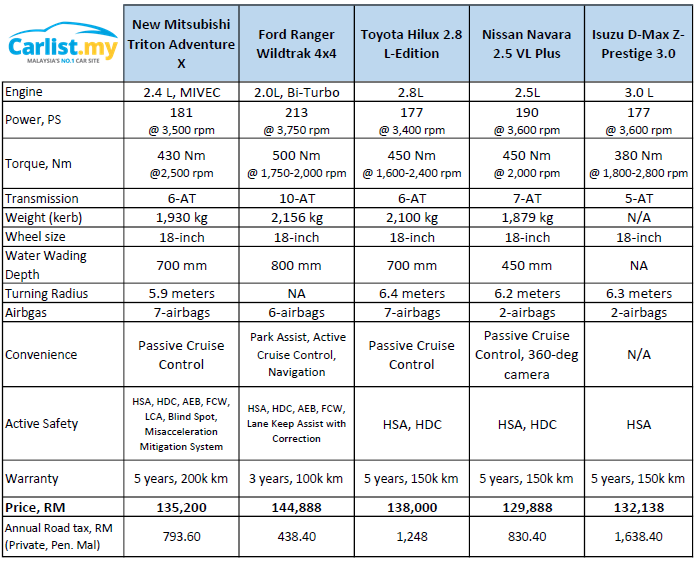
In terms of pricing, the Triton slots right in the centre of the group. riced from RM135,200, it offers great value in terms of its suite of active safety features and sophisticated AWD system.
In terms of power, the Ranger’s 2.0-litre bi-turbo engine is in a league of its own – with 213 PS of power, it produces nearly 23 PS more than the next most powerful vehicle, the Navara (at 190 PS) and nearly and 32 PS more than the Triton, in third place (with 181 PS).
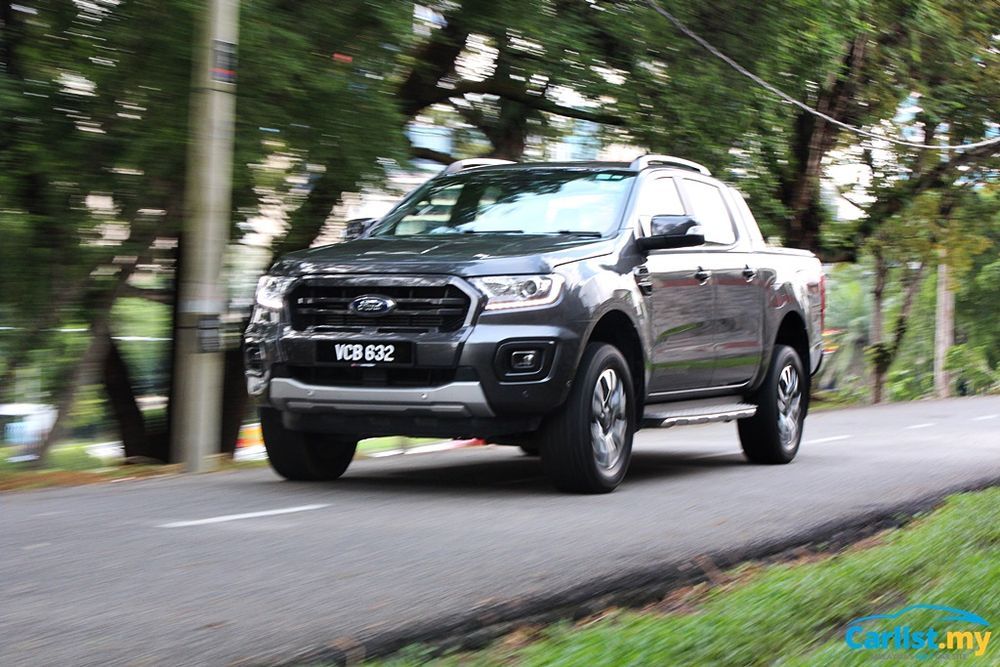
Powertrain
It’s much the same with torque: the Ranger eclipses its rivals with 500 Nm, 50 Nm more than the Navara and Hilux – both produce 450 Nm – followed by the Triton with 430 Nm. That said, peak torque is produced earliest in the Hilux, at 1,600 rpm, which is a boon when going off-road and if immediate power is needed to overcome an obstacle. Also, note that the D-Max sustains its peak torque the longest – between 1,800 rpm and 2,800 rpm – a crucial aspect especially when climbing steep hills or muddy sections.
However, while the Ranger might be the most powerful, it’s also the heaviest – with a kerb weight of 2,156 kg, it’s nearly a quarter of a tonne heavier than the Triton. The Hilux comes in a close second with a kerb weight of 2,100 kg. So in terms of the power to weight ratio, the Ranger (at 98.8 PS/Ton) comes in second to the Nissan Navara, which delivers 101.1 PS/Ton, followed by the Triton at 93.8 PS/Ton.
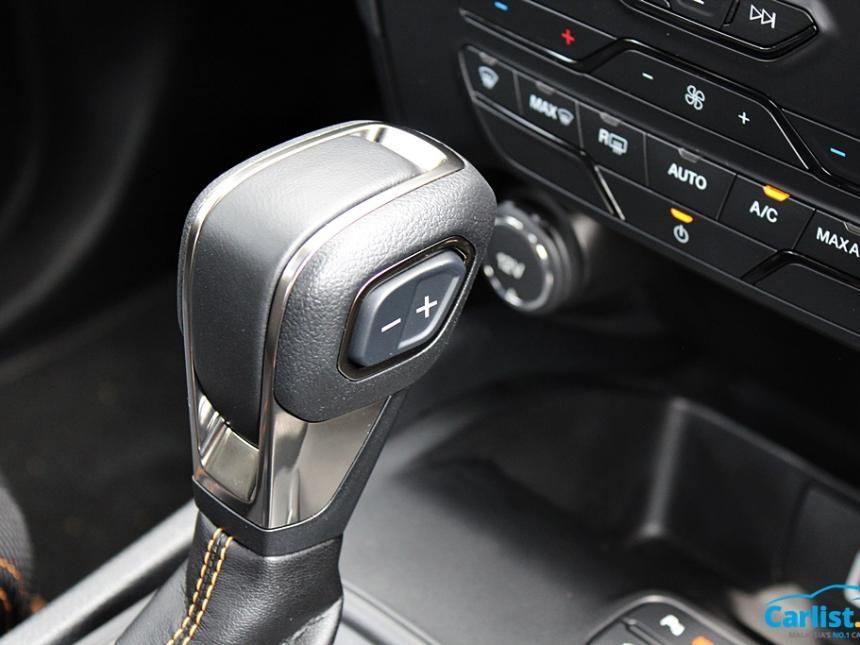
What the Ranger has going for it, which no other truck in the group offers is a slick-shifting 10-speed automatic. The 10-speed automatic grants the Ranger impressive highway cruising ability and ensures the engine is always in its optimum power band. The Navara does with a 7-speed automatic, while the Triton and Hilux make do with a 6-speed automatic, the D-Max uses a proven 5-speed automatic.
Driving Experience
In practice, the Ranger, Triton, and Navara are well-heeled for day-to-day use on the highway and within the city, and also for transporting goods. The Ranger excels with light and quick (electric) steering, a powerful engine, and an SUV-like suspension setup. That is not to say the Triton is a slouch; its equally agile and surefooted on and off the road, and comfort levels are as good as the Ranger, if not better, and it’s also got the best turning radius of the bunch, at 5.9 meters – making it very adept on tight, city roads.
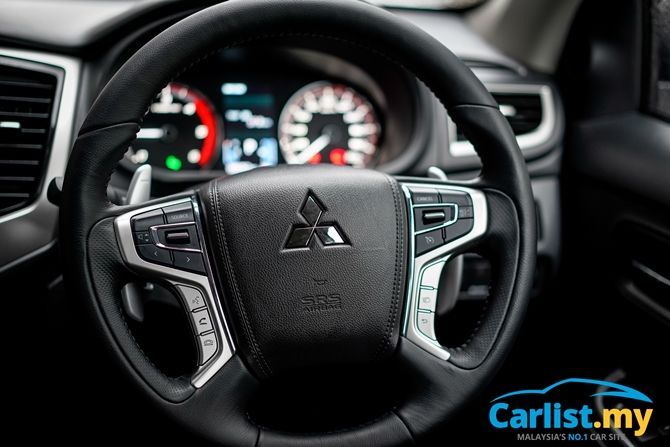
The Navara is the only truck here that utilises a multi-link rear suspension setup instead of the traditional leaf-spring common to pickups, it grants the Navara a nice supple ride, but proves a tad too soft when laden at the back. The Hilux too is impressive on the roads but loses out only just because it still retains some measure of stiffness which makes it very capable off-road. It is much the same with the D-Max: while no one would gripe about its on-road performance (perhaps the game has also moved on a bit with the Ranger and Triton), it truly shines when taken off-road. The D-Max’s long-standing record with numerous Borneo Safari Expeditions is a testament of this.
Moving on to the drivetrain systems is where we see intrinsic innovation on Mitsubishi’s part. While all the other vehicles have 4WD modes and pre-requisite low-range gear reductions for going off-road, the Triton’s Super Select 4WD II however, is able to operate almost like a premium full-time 4WD SUV, capable of driving in four-wheel drive 4H mode even on normal roads - the only pick-up truck on the market with such capability.
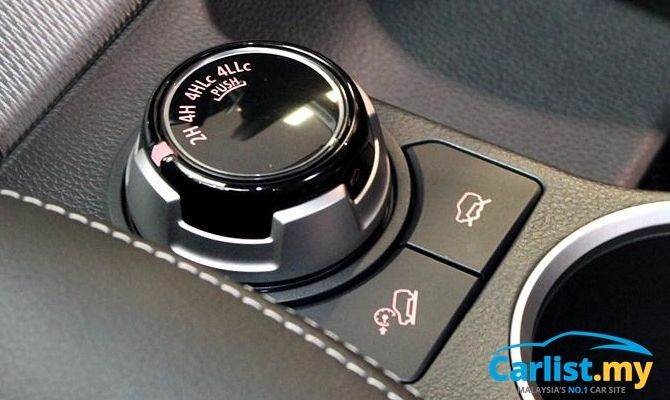
A centre differential compensates for differences in the individual tyres rotational speeds at the front and rear axles, thus allowing us to maximize the usage of the 4WD system. Shifting between 2H to 4H can be performed at speeds of up to 100 km/h.
Safety
On the safety front, both the Triton and Ranger enlist a suite of active safety functions that rest of the pickup group don’t offer. The range-topping Triton Adventure X comes with Forward Collision Mitigation (FCM), Ultrasonic Mis-acceleration Mitigation System (UMS), Rear Cross Traffic Alert (RCTA), Blind Spot Warning with Lane Change Assist (BSW with LCA), and Auto High Beam (AHB). The Ranger does without a blind spot warning system but has a more advanced Lane Keep Assist system that offers both warning and steering correction. The other Hilux and Navara make do with just hill-start assist and hill-descent control as an additional driver assistance feature, the D-Max with just hill-start assist.
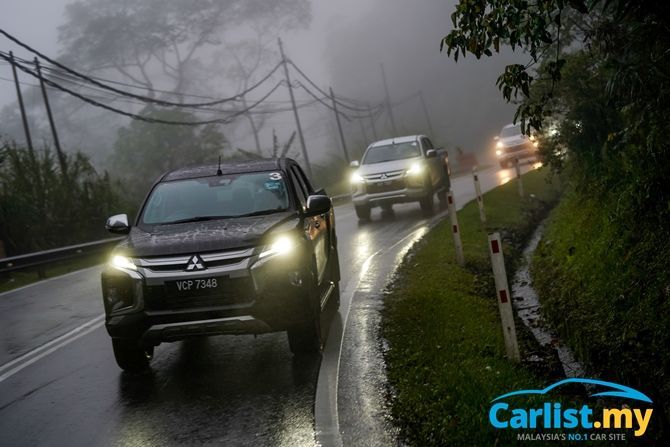
Interior
Moving inside, having recently tested the Ranger Wildtrak, we found that refinement levels have improved substantially. There’s little trace of wind and road noise and the characteristic chatter from the diesel engine up front; while initial tests of the Triton also suggest that NVH levels have much improved over the predecessor, we’d have to reserve final judgement for when the car is driven on more familiar roads.
The Hilux also boasts far improved NVH levels in the 2.8 L-Edition variant over its predecessor, very close to that of its Fortuner SUV sibling, having tested both of them back-to-back. This is another example of where the newer platforms (which share development with ladder-frame SUV models) have pushed the envelope for pickup trucks. The Navara and D-Max still lack execution in this department.
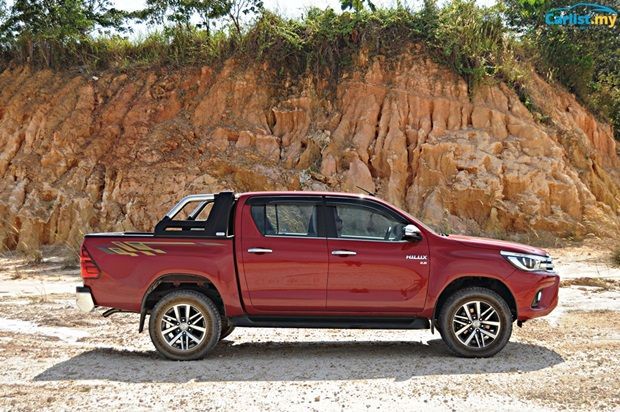
Infotainment and connectivity have also vastly improved over the years. Perhaps most impressive is the Ranger’s Sync 3 system which features an 8-inch touchscreen display, voice command, and Android Auto and Apple CarPlay connectivity. The Triton’s infotainment lacks in comparison; resolution is low compared to the Ranger’s Sync 3 but at least it supports Android Auto and Apple Car Play. All the others here – with the exception of the Hilux, which additionally offers DVD playability – feature a touchscreen system with Bluetooth connectivity.
Conclusion
Over the past decade or so – driven by market forces of course – we have seen a substantial shift in terms of engineering, safety, and connectivity in pickups. Yes, while the overarching principle of a truck remains a do-it-all workhorse, there’s a fundamental skew towards lifestyle aspirations and they’re all the better for it. It’s also the best way – in my opinion – to rank the current group of trucks.
So if we laid them out on a spectrum, with ‘utility’ as a criterion at one end and ‘lifestyle’ at the other end, the D-Max would be the most utilitarian of the lot. Yes, in its Z-Prestige guise, it’s gained some stylistic and connectivity additions, but there’s no denying the drivetrain and platform is aging. Its traction levels and efficient engine make it a superstar off-road and a great goods hauler, but in terms of comfort levels and refinement it loses out to the rest.
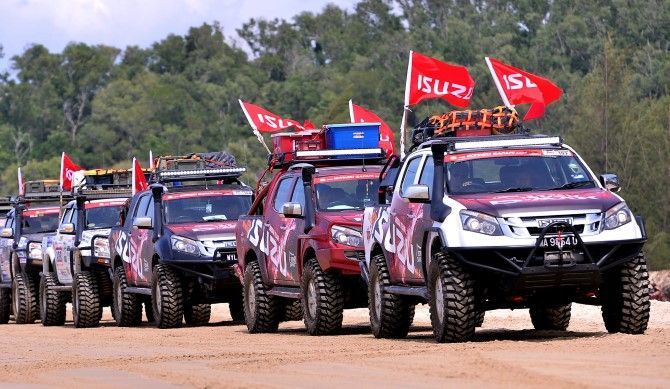
The Hilux practically started the pickup truck segment and holds true to its heritage of rugged dependability, superb build quality, and awesome traction levels (thanks to its A-TRC system). The 2.8 L-Edition variant adds Hill-Descent Control and a reverse camera but overall, the Hilux still has an affinity for the rough and tough before anything else. And truth be told, I don't think we would have it any other way.
The Navara comes next, with a revolutionary rear suspension setup and a tried and tested powertrain – the Navara offers a comfortable ride, superb value for money, a comfortable cabin space, and day-to-day drivability. It’s also the only one here that offers a 360-degree camera which really helps when driving in crowded city centres. It is edged out by the Triton and Ranger in the lifestyle department due to its lack of connectivity and safety features.
The Triton, in my opinion, is the new best value proposition: between its snazzy styling, driver assistance and safety features, punchy engine, and sophisticated AWD drivetrain, it definitely has what it takes to offer both utility and practicality in spades. Also, note that it has the most comfortable rear seating and NVH levels are very impressive. There’s still some improvement needed in terms of connectivity.
Which leaves us with the Ranger, across its range of abilities: solid refinement levels, superb on-road handling performance, the full suite of driver assistance and safety features, and comprehensive infotainment functions, it’s still the most complete pickup if most of your usage requires putting thousands of miles on highways and crowded urbanscapes. It’s the most expensive too, but for the most part, justifies its price with its breadth of capabilities.